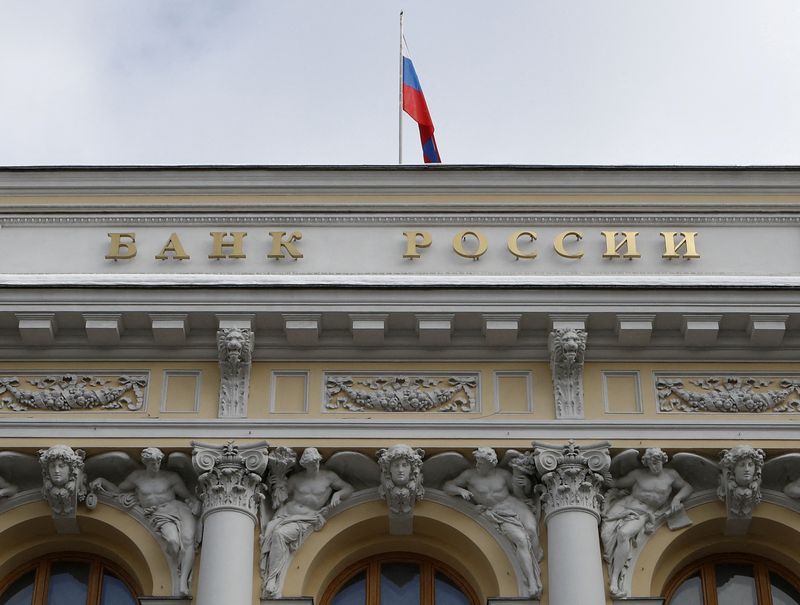(Reuters) - Russia's central bank said on Friday that inflationary pressures across the economy had remained strong during the first two weeks of February, citing a slump in the rouble as a factor.
Russia recorded inflation of 11.8% on an annual basis in January, almost three times the central bank's official 4% target. It signalled last week it was preparing to raise base interest rates to cool inflation.
"Operational data for the first two weeks of February indicate the trend towards increased price pressures continues," the bank said on Friday in a report.
Prices across Russia have been extremely volatile in the year since Russia invaded Ukraine - with a period of rapid inflation following the imposition of Western sanctions followed by months of deflation as capital controls pushed the rouble higher.

But falling revenues from crucial oil and gas sales have again hit the Russian currency this year. The rouble has fallen 16% since the start of December, when a European Union embargo and G7 price cap on Russian crude sales came into force.
"The exchange rate has already affected (prices of) the most import-dependent products in January, and if the rouble remains at its current level, this will continue to have a pro-inflationary effect in the coming months," the bank's analysts said in the report.